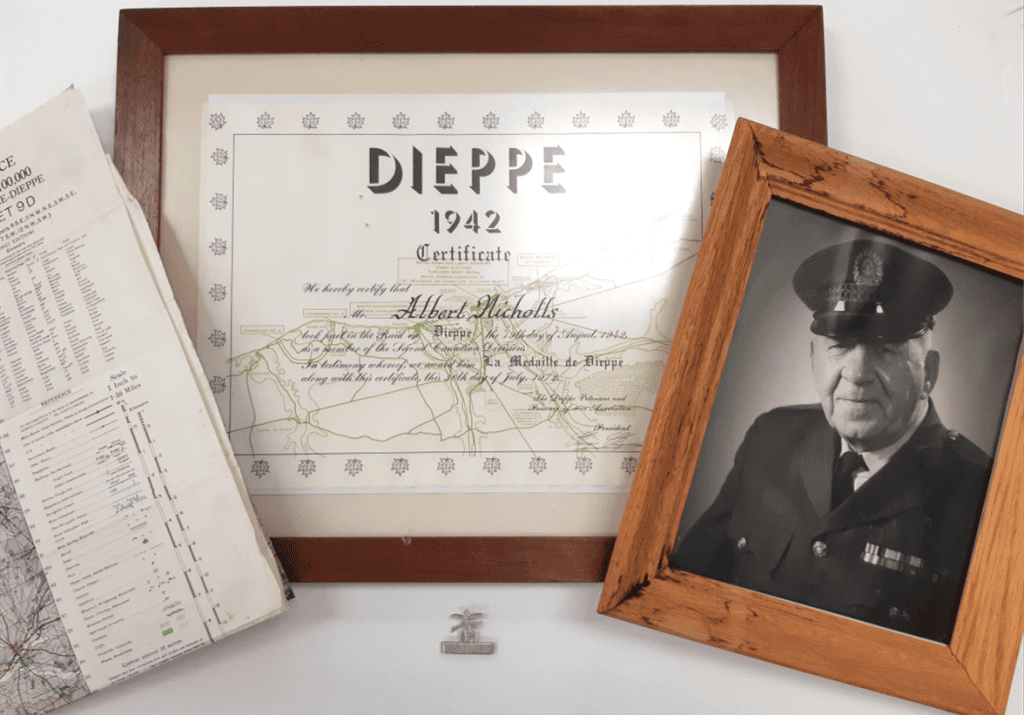Anniversary of the Dieppe Raid or Operation Jubilee
2022 marks the 80th anniversary of Canada’s most deadly day during the Second World War – the Dieppe Raid.

At the RCA Museum, we don’t have many Dieppe Raid-related artifacts. We have a certificate to Albert Nicholls, which states he “took part in the Raid on Dieppe the 19th day of August 1942, as a member of the Second Canadian Division,” produced by the Dieppe Veterans and Prisoner of war association. A photo of Albert Nicholls in uniform, a WW2 map of France, and a Dieppe uniform pin, are shown above.
In the spring of 1942, the Allies were not strong enough to mount a full-scale invasion of continental Europe. Instead, the Allies planned for a limited amphibious raid on the Port of Dieppe, France. The attack occurred when the majority of continental Europe was under German occupation and when the Allies did not have a foothold in Europe. RCA Great Gunner, Major-General J.H. Roberts, Commander of the 2nd Canadian Division, led the Dieppe Raid or Operations Jubilee. The decision to conduct the raid was primarily political, and the Port of Dieppe was of little strategic importance to the Allies.
On 19 August 1942, 4,963 Canadian soldiers, out of the total Allied operations force of at least 6,050, stormed the beaches of the port town of Dieppe, France, and paid a terrible sacrifice. By day’s end, the Allies withdrew their force, failed to achieve their primary objective of occupying the town of Dieppe and suffered heavy casualties. Canada had 3,367 casualties that day, including 907 deaths and 1,946 soldiers taken prisoner-of-war. Only 2,210 Canadians returned to England, with approximately half wounded. The raid failed for many reasons, including but not limited to a lack of complete air superiority, overpowering firepower, and massive artillery support.
The Dieppe Raid represented one of the most demanding and deadliest learning experiences during the Second World War. The loss of life and failure to take Dieppe were not entirely in vain. In war, there will always be challenges that test one’s mettle, and sometimes objectives are not achieved, which happened in this case. It was a failure that no one intended; however, Canada and the Allies learned from this experience and corrected their errors, becoming a more effective fighting force. Inadvertently, the lessons learnt from Dieppe would help Canada and the Allies be successful during the large-scale D-Day Landing, liberating Northwest Europe, advancing into Germany, and ultimately winning the war in Europe.
In 2022, pause and reflect upon Canada’s most deadly day during WW2.
By Andrew Oakden
